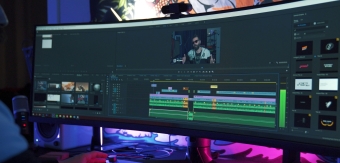by Magnus Shaw
 Yahoo - that other search engine - has announced it is to axe its personalised, digital magazine Livestand, after just seven months of publication.
Yahoo - that other search engine - has announced it is to axe its personalised, digital magazine Livestand, after just seven months of publication.
Don't worry if you haven't heard of it, the platform was only launched in the States back in November. Plans for its global roll-out (and indeed, first birthday) will now be shelved as its brief lifespan is terminated.
Livestand was more than an online lifestyle magazine. Based on HTML5, it pulled content from Yahoo servers and was designed to attract content from other publishers, thereby creating a bespoke read for the user. Now, I think that's a very clever idea but unfortunately, it is a clever idea which is dead in the water. Yahoo have said:
'We will be discontinuing or consolidating the number of products across our technology platforms, to make our expansion of existing products onto key platforms more scalable and nimble
"We have learned a lot from Livestand and are actively applying those insights toward the development of future products that are better aligned with Yahoo!'s holistic mobile strategy."
Yes, sorry. For some reason tech companies feel compelled to talk in that ridiculous way. But whatever Yahoo is trying to say, what they really mean is Livestand is unlikely to make sufficient profit, in a sufficient hurry, to justify its existence (you can be sure it did nothing but cost money in its first and only half year).
So, why does this matter? Well, I think it tells us a lot about the state of play in the digital media business. But first, a comparison.
For a while now, musicians have bemoaned the lack of patience and investment delivered by the recording industry. There was a time when an act would be signed in order to be developed. A budget would be allocated with the specific aim of turning raw talent into a successful star. The record company wouldn't expect much from the artist's initial releases, viewing them loss leaders and audience-building tools, the cost of which would be recouped when later material hit big. This is no longer the case. Major labels sign acts with the absolute expectation of immediate volume sales. Kate Bush was funded by EMI for a year before 'Wuthering Heights', Jessie J would have been shown the door within weeks if she hadn't gained rapid traction with the public.
This restless approach is now in full play in the technology arena. Applications are expected to pay their way in an astonishingly short timeframe if they are to survive. From the day of release the gun is cocked and it has a hair trigger.
I can't begin to guess how Yahoo imagined Livestand would perform in 200 days. If they were expecting immediate and massive uptake followed by world domination, they were deceiving themselves on an industrial scale. If their ambitions were realistically modest, just how far below them did Livestand fall?
When attempting to predict the evolution of a new digital platform, it's useful to recall the story of Sky Television. At launch, Sky was not only something of a mystery to most people, it also faced a direct competitor (BSB). Even when the competition had been eliminated and a monopoly on satellite television created, you wouldn't have put a tenner on the Sky project lasting much longer. Subscription was sluggish, quality dubious and demand weak. Rupert Murdoch was frequently urged to pull the plug as the service lost £3m a week. At one stage, he was forced to back the network using his New York apartment as collateral. However, slowly and with continuous investment, the concept gained a foothold. Exclusive coverage drew sports fans to the Sky channels while an odd looking, yellow family attracted others (one must never underestimate the roll of The Simpsons in Sky's success). Today of course, Sky is almost a standard utility in UK homes and highly profitable.
That's how the introduction of a novel, groundbreaking medium works. If it is to flourish, a great concept and excellent content are not quite enough. Commitment, patience, nerve and belief have to be on board too. Oh and money, lots of money.
With Livestand, Yahoo has missed this truth - seeing the process as a sprint, when it is actually a marathon. Seven months is a ridiculously brief period of time in which to expect a new concept to prove its worth. If Yahoo were ready to lose faith at such an infant stage, why on Earth did they launch it in the first place?
The moral of the story? Any company hoping to clean up in new media needs to be confident, clever, creative and ready to invest considerable cash. Because, as the Sky saga shows, this is no country for cowards.
Magnus Shaw is a copywriter, blogger and consultant.
Visit Magnus Shaw's website
www.creativepool.co.uk/magnusshaw
"ADVICE" a collection of Magnus Shaw's columns is now availble as a Kindle book.





